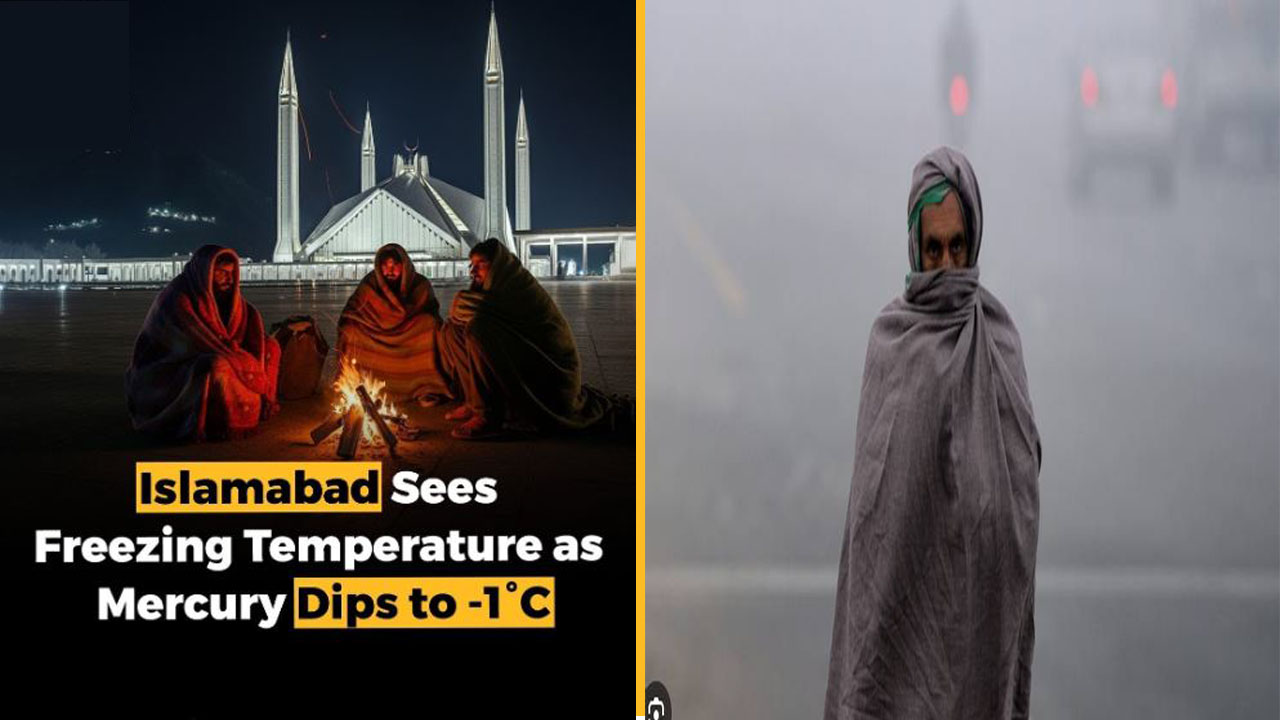Pakistan is in the grip of an intense cold wave, with temperatures plunging to record lows across various regions, including parts of Kashmir. According to the Pakistan Meteorological Department (PMD), freezing conditions have prevailed nationwide, with the capital city, Islamabad, experiencing a minimum temperature of 0°C for the second consecutive time this season. The lowest temperature was recorded in Leh, where the mercury dipped to a staggering -12°C.
Extreme Cold Across the Country
Regions in northern Pakistan and Balochistan have seen some of the harshest temperatures this winter. The following regions recorded minimum temperatures:
- Astore: -11°C
- Skardu: -9°C
- Quetta, Kalam, Gupis: -6°C
- Hunza, Bagrot, Ziarat, Kalat: -5°C
- Gilgit, Chitral, Dir: -4°C
Temperatures in Major Cities
Major urban areas have not been spared from the biting cold. Here’s a snapshot of the minimum temperatures recorded in prominent cities:
- Islamabad: 0°C
- Lahore: 5°C
- Karachi: 12°C
- Peshawar: 2°C
- Quetta: -6°C
- Gilgit: -4°C
- Muzaffarabad: 2°C
- Skardu: -9°C
- Murree: -1°C
- Faisalabad: 4°C
- Multan: 6°C
Chilling Conditions in Kashmir
The cold wave has extended its grip over Kashmir, with severe sub-zero temperatures recorded in many areas:
- Srinagar: -2°C
- Jammu: 4°C
- Leh: -12°C
- Pulwama: -3°C
- Anantnag: -2°C
- Shopian: -3°C
- Baramulla: -3°C
Impact on Daily Life
The freezing temperatures have disrupted daily life across the country, with residents facing difficulties in accessing basic amenities. Many areas have reported challenges, including:
- Disrupted Water Supply: Pipes have frozen in high-altitude regions, leading to water shortages.
- Increased Energy Demand: Heating requirements have caused a surge in energy consumption, putting pressure on gas and electricity supplies.
- Health Concerns: Exposure to extreme cold has raised concerns about respiratory illnesses, particularly among vulnerable groups like children and the elderly.
Safety Precautions
The PMD has urged citizens to take precautions to minimize the risks posed by the cold weather. Recommendations include:
- Staying Indoors: Avoid outdoor activities during peak cold hours.
- Layered Clothing: Wear multiple layers to retain body heat.
- Heating Measures: Use safe heating devices to stay warm.
- Hydration: Drink warm fluids to maintain hydration.
Regional Preparedness
Authorities in regions affected by the cold wave are working to mitigate its impact. Emergency services have been activated in high-risk areas, while local administrations are distributing warm clothing and blankets to the underprivileged.
Looking Ahead
The Met Office predicts that the cold wave may persist over the next few days, with temperatures expected to remain low across the country. Citizens are advised to monitor weather updates and follow safety guidelines to ensure their well-being during this harsh winter season.
As the country braces for the intensifying cold, solidarity and preparedness remain key to overcoming the challenges posed by these extreme weather conditions.

